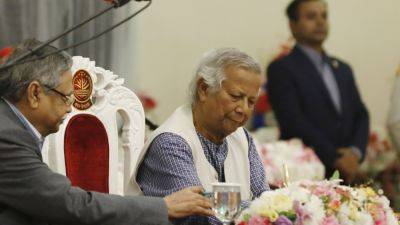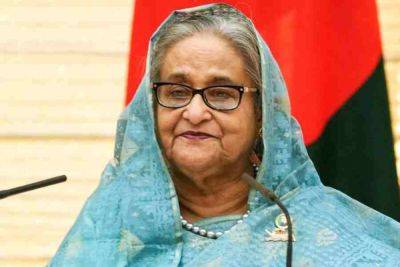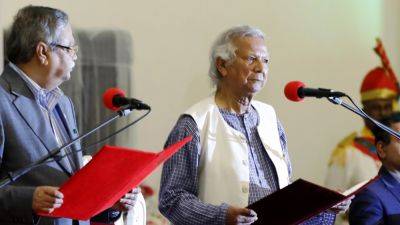Bangladesh’s interim government lifts ban on Jamaat-e-Islami party
Caretaker administration says ex-PM Hasina’s claims of its ‘terrorist activities’ during student protests were groundless.
Bangladesh’s interim government, led by Nobel laureate Muhammad Yunus, has lifted a ban on the Jamaat-e-Islami party that was imposed under an antiterrorism law.
The Ministry of Home Affairs on Wednesday revoked the ban on the country’s largest Muslim party, put in place in the last days of former Prime Minister Sheikh Hasina’s administration accusing its members of fomenting unrest during the student uprising that led to her resignation.
A gazette notification issued by the caretaker government said there was “no specific evidence of involvement of Jamaat” and its affiliates “in terrorist activities”.
The party had denied allegations that it stoked violence during the protests, which saw students take a stand against a quota system for government jobs, condemning the ban as “illegal, extrajudicial and unconstitutional”.
Jamaat-e-Islami, which has millions of supporters, was banned in 2013 from contesting elections after high court judges ruled its charter violated the secular constitution of the Muslim-majority nation of 170 million people.
The party was subsequently excluded from successive elections in 2014, 2018 and in January this year, when 76-year-old Hasina won her fifth term in widely discredited polls without a credible opposition.
Hasina’s government banned the party on August 1, just four days before she was removed from power after weeks of student-led protests, fleeing to India by helicopter.
Mirza Fakhrul Islam Alamgir, secretary-general of the Bangladesh Nationalist Party, had accused Hasina’s government of trying to divert attention from a crackdown by security forces in which more







